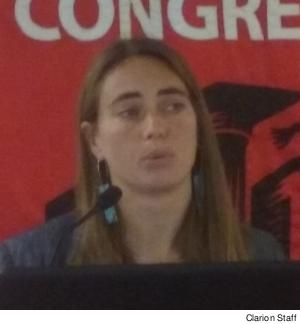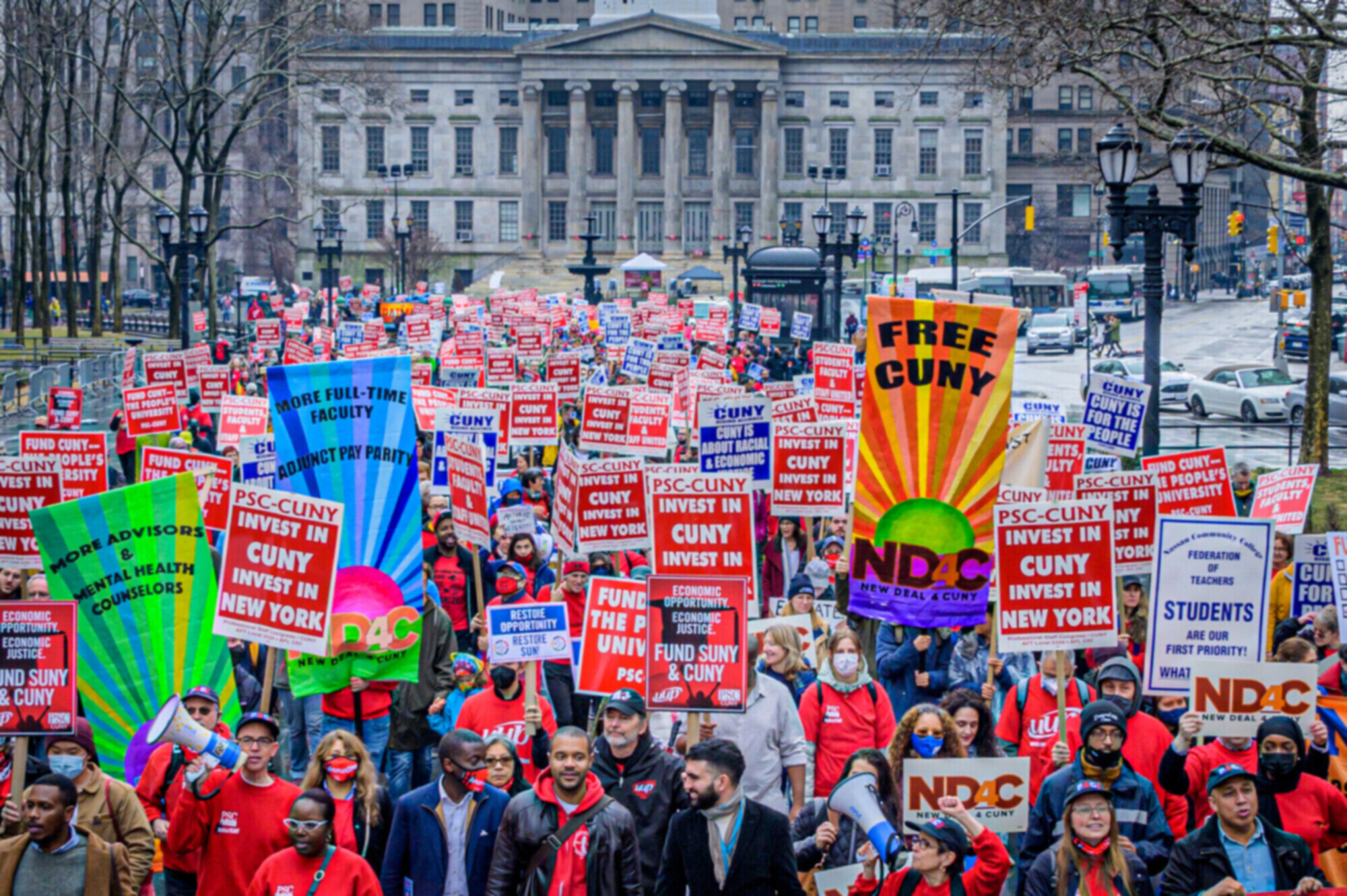As leaders from around the world prepared to convene in Paris for the climate talks known as COP21, the PSC Retirees Chapter called its own climate-change summit at a lunchtime meeting in the Union Hall on November 1 that featured three experts to address the climate crisis.
Reginald Blake, director of the City Tech Center for Remote Sensing and Earth System Sciences of the CUNY CREST Institute, kicked things off with a series of sobering slides that showed the projected waves of accelerating temperatures engulfing broad swathes of the nation together with forecast maps showing parts of Manhattan and Brooklyn under water as rising global temperatures cause the sea levels to rise.
More Weather Catastrophes
According to a New York State report on climate change, “By 2100, scientists project sea levels 18 to 50 inches higher than today along New York’s coastlines and estuaries, though a rise as high as 75 inches could occur.”
Blake, an associate professor of physics and member of the Mayor’s Task Force on Resiliency, essentially told the audience to brace itself for more weather catastrophes on the order of Hurricane Sandy, which was described in media reports as a “100-year storm” — meaning that a storm of that magnitude generally occurs only once in a century. But with the elevation of Earth’s temperature and the encroaching sea, a storm like Sandy could occur 10 times in 100 years.
“I tell you it doesn’t matter how much we make the city resilient,” he said. “We have so many more people living near the coastlines that we’re still going to have a whole lot of adverse impacts.”
One big challenge on the mitigation and research front, he said, is the number of climate experts retiring from the National Oceanic and Atmospheric Administration (NOAA) and the National Aeronautics and Space Administration (NASA), and a dearth of replacements.
“There’s a great push by the National Science Foundation to put money into programs trying to get young people interested in the geosciences,” he said.
Lara Skinner, associate director of research at the Cornell University School of Industrial and Labor Relations’s Global Labor Institute, addressed the climate crisis from a regional policy perspective, including the institute’s advocacy for the retrofitting of all of the state’s public schools, and the installation of solar panels on the roofs of all school buildings.
 |
Such a scheme could produce three gigawatts of power, she said — a significant amount of the state’s total usage — and produce tens of thousands of “good, union jobs.” She called for the work to be administered through the New York Power Authority, which has the authority to raise funds through the issuance of bonds, and would keep the project in the public sector as “a common good.”
Obstacles to Progress
In opposition to public projects at such a scale, she noted, was the American Legislative Exchange Council (ALEC), the anti-regulatory alliance of business interests that has enjoyed funding from such industrialists as Charles and David Koch, the political megadonors who are principals in Koch Industries.
The ALEC agenda, she said, was all of a piece, both in its anti-labor and anti-environmental character.
In addition to “undermining the minimum wage” and “weakening worker protections,” Skinner said, “they’re trying to deny that climate change even exists. They’re trying to prevent any action on climate change; they’re attacking funding support for renewables like solar and wind at the same time that they’re trying to expand fossil-fuel infrastructure.”
Rounding out the program was Sean Sweeney, director of the International Program for Labor, Climate and the Environment at the CUNY Murphy Institute, who described the current state of global targets for the reduction of carbon emissions as too low, and cautioned against exuberance over any agreement reached at the Paris climate talks. “[The Paris agreement] will be hailed as a massive success in the media,” he said. “But I want everyone to understand that when the administration comes out, and the New York Times, hailing it as historic, historic, historic, that it’s nowhere near where it needs to be.”
(As Clarion went to press, world leaders had yet to release the outlines of a final agreement from the climate talks.)
All of the speakers agreed that without the concerted efforts of activists to combat climate change — one built on alliances between all stakeholders — the actions of governments would likely fall short.
Forces such as ALEC, Skinner said, “have a lot of money on their side, so we’re going to need a very powerful social movement to stop them.”

